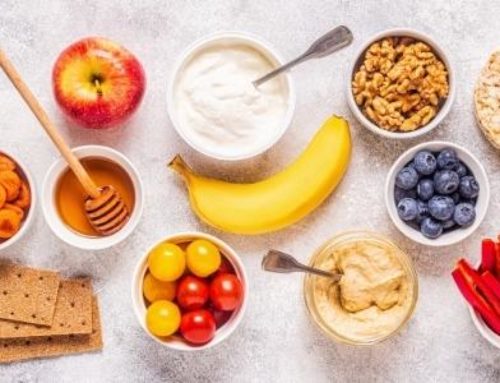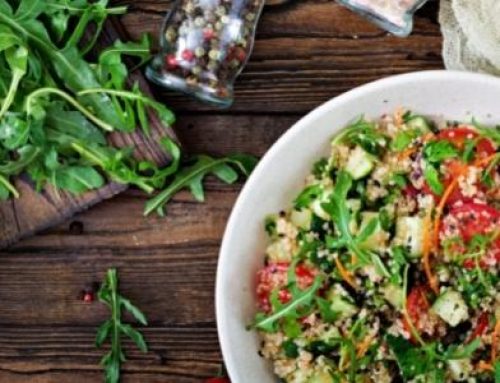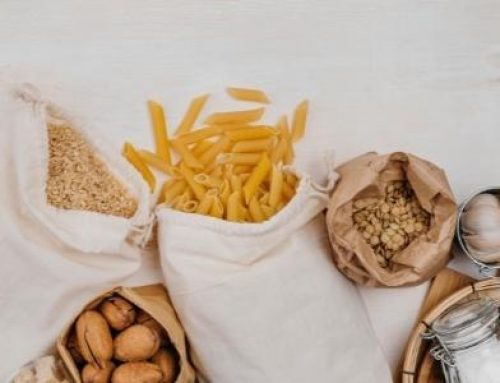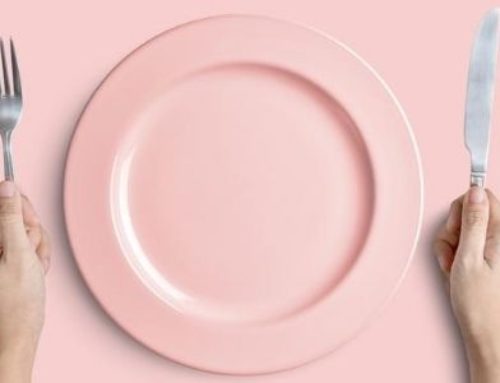Here at The Healthy Eating Hub we believe in eating whole fresh foods. This means that we absolutely love fresh fruit and vegetables. They are the cornerstone of a healthy diet.
The Australian Dietary Guidelines recommend five serves of vegetables and two serves of fruit every day for good health.
One food you really should include regularly in your diet, are mushrooms. Here’s why:
What are mushrooms?
Before we go any further, I do need to clear something up.
Mushrooms are not technically a vegetable. They’re also not a fruit. Actually… they’re not even a plant (I know, what the?). They have a different nutrition profile to fruits and vegetables altogether.
Why are they so good?
Research has been mounting over the past 12 years about the incredible health benefits that mushrooms can offer us. These benefits include essential vitamins and minerals, weight maintenance, increased immunity and improved blood lipids (cholesterol, etc).
Mushrooms are very low kilojoule foods, meaning they contribute small amounts of energy to the diet. They are higher in protein than other vegetables and have a carbohydrate content similar to zucchini to tomato.
Macronutrient Nutrition per 100g of mushrooms
- Energy: 103kJ (24cals)
- Protein: 3.3g
- Carbohydrate: 0.3g
- Fat: 0.3g
- Fibre: 1.5g
In terms of micronutrients mushrooms are high in antioxidants and an especially good source of vitamin B12, riboflavin, niacin, pantothenic acid and biotin (these are all B group vitamins) and the minerals selenium and copper. They also offer folate in smaller amounts as well as other bioactive compounds. Their low energy content, yet high amounts of nutrients make them highly nutrient dense.
Nutrient dense foods should make up the majority of our diet. They help us control our energy intake for good weight maintenance yet they help us meet all our body’s vitamin, mineral and fibre needs.
Vitamin D
It’s incredibly difficult to meet our vitamin D requirements through diet alone. That’s because the majority of our body’s vitamin D needs is synthesised by the action of sunlight on our skin. Due to decreased sun exposure in recent years, the result of vigorous sun-safety campaigns and Australians spending less time outdoors, we’re at an increased risk of becoming vitamin D deficient.
Apart from fortified margarines, canned fish and eggs, mushrooms are the only decent food source of vitamin D. Mushrooms create vitamin D, through the action of sunlight, just like we do (by converting ergosterol to ergocalciferol).
Simply place mushrooms in direct sunlight for an hour or so to generate 20mcg or more of vitamin D2. Cultivated mushrooms don’t tend to have much sun exposure, so in order for your mushrooms to offer you a decent source of vitamin D, they must have some time in the midday sun.
Population groups at risk of vitamin D deficiency such as those with dark skin colour (the presence of melanin slows down vitamin D synthesis), those who spend large amounts of time indoors during the day (office workers) or those who cover their whole bodies due to cultural or religious reasons, can benefit from the vitamin D available in mushrooms that’ve done a little sun baking!
This area of research also shows us that the majority of vitamin D in mushrooms is retained with cooking (about 75%) and even with cold storage (keeping your mushrooms in the fridge).
 Buying Your Mushrooms Local
Buying Your Mushrooms Local
Being smart about how we source and buy our food is an extremely important part of eating well.
If you’re serious about eating good quality food then it pays to buy it from local growers. Not only are you getting a fresher product, that lasts longer, you’re also supporting our local farmers and businesses.
When the Australian Mushroom Growers Association sent me this big box of mushrooms last week, I was blown away by how fresh, plump and big these babies were! You don’t get mushrooms like this at the supermarket. I still have a some left in my fridge a week later that are completely fine to use.
So next time you have a hankering for some humble mushroom in your dinner, head to your local market instead and get some quality ‘shrooms from your local grower.
Canberra Mushrooms, based at Yass, and Majestic Mushrooms in Murrumbateman supply fresh mushrooms to ACT independent grocers, food service outlets and weekly farmer’s markets.
Read more about why buying local is the next big thing.
How much should I eat?
I’m glad you asked that question!
Aim to include some mushrooms in your diet a couple of times a week. If this is on top of your regular vegetable intake, then thats fantastic. You could even include a serve of mushrooms (3-4 large) as one of your daily serves of vegetables. Just 3 mushrooms a day can meet your daily vitamin B12 needs – this is especially good for vegetarians and vegans.
Ways that you can eat them
It’s easier than you think to include mushrooms regularly in your diet.
You can chuck some into your regular bolognese sauce, throw some raw sliced mushrooms into a garden salad, sauté some in butter and garlic and serve on toast or grill some on the BBQ at your next big cook up.
I also like to sauté mushrooms in basil pesto and serve on toasted sourdough, or simmer them in cream and dijon mustard for a rich steak or chicken sauce. I’ll often serve sautéed mushrooms with my scrambled eggs on toast and this week I sautéed mushrooms with cherry tomatoes and served it with my ham, cheese and spinach pikelets.
Here are some great mushroom recipes to try:
Mushroom, Feta and Spinach Pasta
Bacon, Leek and Mushroom Risotto
Disclaimer
A media kit, cookbook and box of fresh mushrooms was delivered, free of charge, to Kate Freeman, owner of The Healthy Eating Hub, as part of the Power of Mushrooms Campaign run by the Australian Mushroom Growers Association.
Here at The Hub we believe in the benefits of eating whole, fresh food and in supporting local producers so we felt this was a worthy campaign to be a part of. These decisions are made at our discretion. For more information about the campaign please visit: www.powerofmushrooms.com.au. For questions or comments please contact us.
If you’d like further help with your nutrition please click below:







